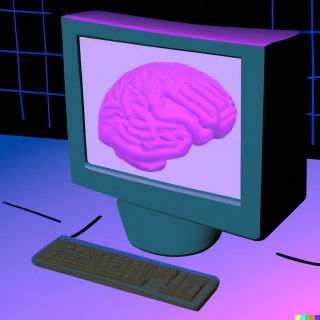Attention
Your Brain Is Bad at Doing Everything Everywhere All at Once
It actually costs a lot to pay a little attention.
Posted January 12, 2024 Reviewed by Tyler Woods
Key points
- Multitasking takes attentional resources and reduces performance.
- Learned motor skills are often thought to be so "automatic" that little attention is used.
- Even well-practiced motor tasks are affected when we're trying to remember something new.
- Single-tasking whenever possible is something worth practicing.
Everything we think or do requires some amount of attention. We are often called upon to do more than one thing at a time. Simultaneous activity, especially involving movement and motor actions, takes up a lot of our cognitive resources. There's been an idea that maybe we can train to get better at this. But is that really true?

Memories messing with moving
Studies on cognition, attention, and performance often assess how we can function by asking folks to do multiple things individually and then simultaneously. These "dual task" paradigms might use a motor task—even something as simple as standing still—combined with a memory or math task and then assess how performances in both are altered.
It's generally assumed that motor tasks that are fairly simple and are relatively safe from the decreased performance found when multi-tasking. But is this true?
This is the central question that caught the attention of Annalena Monz and her colleagues at the Institute of Sport Sciences, Saarland University in Saarbrücken, Germany. They acknowledged that "well-learned motor skills should be automatized, leading to less interference" when combined with other tasks. They studied this in a very clever way.
Kick, Row, Remember
They used a memory encoding task (basically lists of words) in combination with two kinds of motor tasks: 1) rowing, which has a simple pattern of motion; and 2) Tae Kwon Do, which has a more complex coordination demand. The participants in both activity groups had extensive experience with rowing or Tae Kwon Do and the patterns they performed during the memory encoding tasks. If "automatic" motor tasks were independent of the need for attention, then the increased demands of memory encoding should have little effect.
But this is not what the researchers discovered. Instead, "performing the motor task during encoding led to pronounced performance reductions in memory in both studies, with costs of up to 80 percent". These effects were especially amplified when more effort was needed, such as in a faster rowing condition. In general, the memory encoding caused rowing to become "slower and more irregular," and the performance quality of Tae Kwon Do declined.
As might be predicted, higher-skilled participants "outperformed others in motor skills under single-task conditions," yet the "proportional dual-task costs were similar across skill levels for most domains". The authors suggest that "even well-practiced motor tasks require cognitive resources."
You Can't Out-Practice Performance
Although it's inaccurate to directly equate computers and human brains, there is a parallel here. There are a lot of folks who open a web browser and then just open tab after tab after tab. Suddenly, there are dozens of tabs open and "running in the background". There's a processing cost to this and the computer you are using will be slowed and a bit more sluggish the more tabs are open.
Human brains are similar in this, except the threshold for compromised performance is much lower. You truly can have multiple tabs open in a browser with very little issue, but not dozens. In the case of the human brain, as soon as you are doing more than one thing, performance decreases.
The important point is not that you should never ever multi-task. Our daily lives often force us to do this from time to time. What I'm suggesting is: don't always multi-task. Give your brain a break and try the clarifying act of single-tasking. It's okay to be in the moment and doing just what you are doing. This is the general focus of most mindful and meditative traditions, including martial arts, where the philosophy is about being present in the moment.
Please do your best to remember that your brain is not a web browser. Leaving all the tabs open is always going to cause problems. Try to do some single-tasking in the present moment whenever you can. You truly don't have to let your brain be everywhere, doing everything all at once.
References
(c) E. Paul Zehr (2024)
Monz A, Morbe K, Klein M, Schaefer S. Mutual interference between memory encoding and motor skills: the influence of motor expertise. Front Psychol. 2023 Dec 15;14:1196978. doi: 10.3389/fpsyg.2023.1196978. PMID: 38162966; PMCID: PMC10755016.


